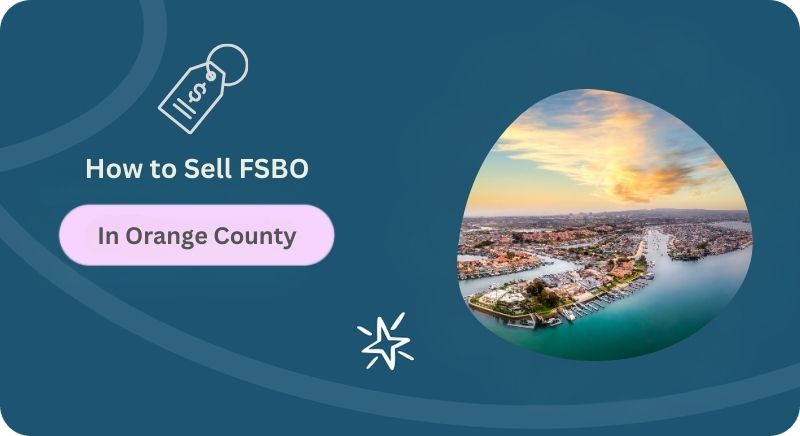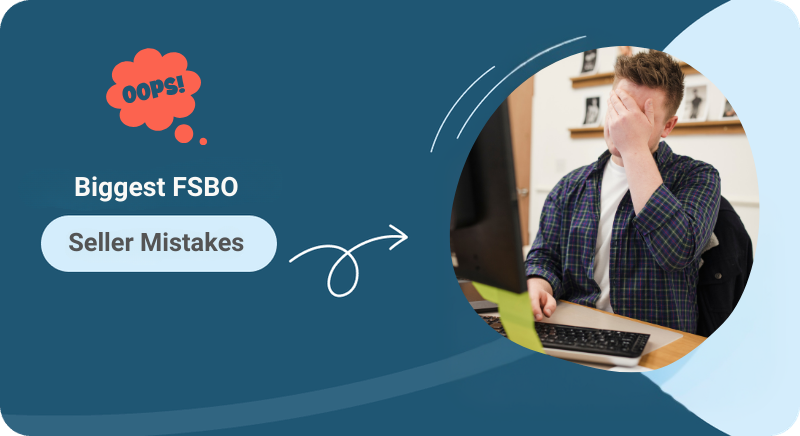If you’re thinking about selling your home yourself in California, you might be wondering:
Do I still have to fill out disclosure forms even if I’m not using a real estate agent?
The short answer is yes.
Even when you sell privately — as a FSBO (For Sale By Owner) — California law still requires sellers to give buyers certain disclosures. This protects both sides, and skipping it can lead to serious consequences later.
Let’s walk through what a disclosure form is, why it’s required in California, and how you can handle it easily when selling your house without an agent.
What Is a Disclosure Form?
A disclosure form is a document where the seller shares important facts about the property with the buyer. This usually includes anything that could affect the value, safety, or desirability of the home.
You’re not expected to know everything. But if you do know something important about the home — like a roof leak or plumbing issue — the law says you have to disclose it in writing.
Are California Sellers Required to Disclose If Selling By Owner?
Yes. One hundred percent.
According to California Civil Code §1102, any person selling a residential property (1 to 4 units) must provide the buyer with specific disclosures — no matter if an agent is involved or not.
It doesn’t matter if you’re selling to a friend, to a neighbor, or to a complete stranger through a flat-fee listing. If you’re the owner, you’re still on the hook for full disclosure.
And if you skip it?
That could open you up to lawsuits, fines, or the buyer canceling the sale after you’re in contract. So yeah, it's kind of a big deal.
Main Disclosure Forms Required in California FSBO Sales
Here are the most common disclosure forms FSBO sellers in California need to provide:
1. Transfer Disclosure Statement (TDS)
The TDS is the most important form. It covers the condition of your home — including major systems, features, and any known issues.
You’ll need to disclose things like:
- Plumbing or electrical problems
- Additions made without permits
- Past flooding or fire damage
- Noise issues or neighborhood nuisances
Even if something was repaired, if you knew about it, you still need to disclose it.
Failure to provide this form can allow the buyer to cancel the contract — even after closing.
2. Natural Hazard Disclosure (NHD)
This form tells the buyer whether the home is located in a:
- Flood hazard area
- Earthquake fault zone
- Fire hazard severity zone
- Or other government-mapped area
Most FSBO sellers order a professional NHD report from a third-party provider (about $50–$100), then attach it to their disclosure packet.
3. Lead-Based Paint Disclosure (if home was built before 1978)
Federal law requires this form for any home built before 1978. Even if you don’t know whether there’s lead-based paint, the form still must be provided.
4. Other Situational Disclosures
Depending on your home and location, you may also need to include:
- HOA disclosures (if your property is in a homeowners’ association)
- Mello-Roos or Special Tax disclosures
- Death on Property Disclosure (if someone died on the property in the last 3 years)
Not every FSBO seller will need all of these — but you do need to know which ones apply to your home.
What Happens If You Skip Disclosures?
Skipping disclosures in California is risky. Really risky.
According to the California Department of Real Estate, disclosure-related disputes are among the top 3 reasons for post-sale lawsuits. These disputes can lead to:
- The buyer backing out of the deal
- Legal action and financial damages
- Court-ordered rescission of the sale
Most of the time, lawsuits happen not because a seller intentionally lied — but because they simply failed to disclose something they thought wasn’t important.
In disclosure, more is better than less. If you’re unsure about something, disclose it.
How FSBO Sellers Can Handle Disclosures Easily
Just because you’re not working with an agent doesn’t mean you’re alone.
Platforms like ListLean help FSBO sellers navigate required disclosures by giving you access to the right tools — and making sure you’re staying compliant.
When you list through ListLean, you’ll know:
- Exactly which forms apply to your property
- Where to download or generate them
- What order to send them to buyers
- When to consult a transaction coordinator if needed
We don’t just help you list. We help you close correctly — and avoid legal headaches later.
Final Thoughts
So… is there a disclosure form if you sell by owner in California?
Yes. And there’s more than one.
Just because you’re skipping the listing agent doesn’t mean you can skip compliance. The good news is — it’s manageable, and you don’t need to figure it out all on your own.
By using ListLean, you can keep your FSBO listing legal, professional, and protected. You keep control, avoid agent commission, and still meet California’s disclosure laws.
Want to sell your home yourself without risking mistakes?
Check out our flat fee MLS plans and get the tools to list smarter, stay compliant, and keep more of your equity.

.jpg)







.svg)
.svg)